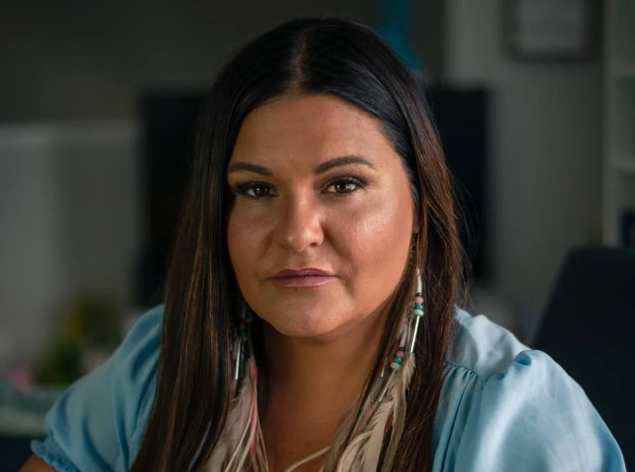“It is not healthy for Canadian democracy to have law enforcement agencies get in the way of journalistic work. Their job is to allow journalists access and get out of the way of independent newsgathering, a process necessary for a democracy, ” says Coalition for Women in Journalism (CFWIJ) and Women Press Freedom (WPF) founding director Kiran Nazish about the arrest and charges.
Canadian courts, including the Supreme Court of Newfoundland and Labrador and the B.C. SupremeCourt,have affirmed journalists’ rights to witness and report on police actions, including arrests. Even the RCMP’s civilian oversight body found the use of exclusion zones to keep journalists away from police
Brandi Morin was specifically targeted by the police, who did not want her to document their actions during a tense encounter at the encampment. Regrettably, Morin is not the first journalist to face such harassment. The arrest of World Press Photo of the Year-winning photojournalist Amber Bracken during her coverage of an RCMP raid on Indigenous land defenders underscores the persistent challenges journalists face while reporting on indigenous stories.
Brandi Morin has earned numerous accolades for her journalistic work and significant contributions she made to journalism and freedom of expression.
“Brandi’s arrest makes an absolute mockery of the rights of freedom of the press,” says Brent Jolly, executive director Canadian Association of Journalists.
Brandi Morin is an award-winning French/Cree/Iroquois journalist from Treaty 6 in Alberta. For the last 10 years Morin has specialized in sharing Indigenous stories, which have influenced reconciliation in Canada’s political, cultural and social environments. She is one of Canada’s most prominent voices on Indigenous issues.
Morin has published or broadcast with the New York Times, National Geographic, the Guardian, the Toronto Star, Al Jazeera English, Vice, Elle Canada, CBC’s Power & Politics, and the Aboriginal Peoples Television Network National News, among many other outlets.
She won a Human Rights Reporting award from the Canadian Association of Journalists for her work with CBC’s Beyond 94 project tracking the progress of the Truth and Reconciliation Commission’s Calls to Action. She has worked with Journalists for Human Rights and has presented to various university campuses in Canada and the United States regarding her work as an Indigenous journalist and is in high demand for commentary and expertise on Indigenous topics.
Source : Women Press Freedom and The Tyee 20










